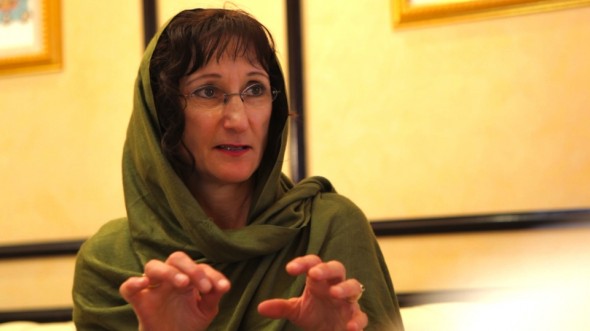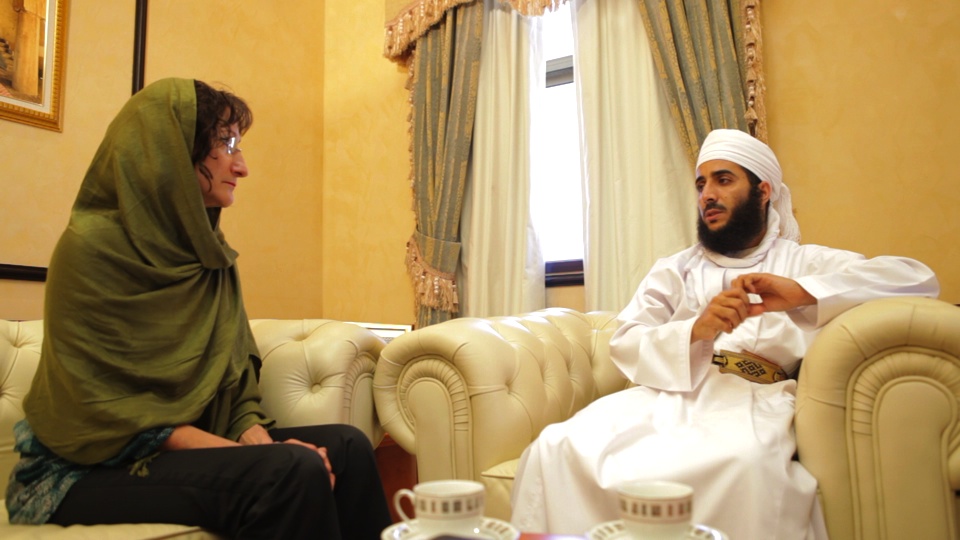On December 31st, I had an interview with Sheikh Dr. Kahlan Nabhan Al-Kharusi, the Assistant Grand Mufti and Jurisprudential Advisor in the Office for the Issuance of Fatwas, the Ministry of Awqaf & Religious Affairs in Oman. He completed both his masters & doctorate in Islamic studies at the University of Oxford. In 2010, by Royal Decree, he was appointed as the Assistant Grand Mufti of Oman. Muftis are Muslim religious scholars who offer influential legal opinions – fatwas – interpreting Sharia – Islamic law.

I was grateful that he took time out of his busy schedule to answer my questions about halal slaughter and the treatment of animals in Islamic teachings. I had many questions about this type of religious slaughter because the animals are not permitted to be stunned unconscious prior to the throat being cut. In the United States, under the Humane Methods of Slaughter Act, livestock is required to be stunned and rendered insensible to pain (unconscious) prior to the throat being cut and the animal bled out. The stunning can be done with either a captive bolt, electrocution, CO2 gas, or gunshot. The parameters of these requirements are extensive as per species and are monitored by the USDA. Religious slaughter in the United States, which includes halal (Muslim) and kosher (Jewish) practices, is exempted from the Humane Methods of Slaughter Act stunning requirement and both halal and kosher slaughter is deemed to be humane. Many respectable veterinary studies by non-Muslims have shown that when the carotid arteries and trachea are cut swiftly with an extremely sharp knife (as required in both halal and kosher methods), quick blood loss will lead to the animal’s unconsciousness before it is able to feel sensations of pain in the neck from the cut. Other valid scientific studies argue the contrary, and say that an animal will feel the pain of the cut regardless. This is why the topic of religious slaughter remains so contentious and controversial in the United States and the European Union today.

Sheikh Dr. Kahlan Nabhan Al-Kharusi was well informed in regard to all of these scientific studies; however, as he is a trained religious scholar and not an animal scientist, the task of our conversation was to explore the guidelines of halal slaughter as they had been revealed to Prophet Muhammad by God. First of all, Muslims must sharpen their knife so it will not cause pain to the animal, and to do so away from the animal’s line of sight. One must also not slaughter an animal in front of another animal. This may harm the feelings of that other animal. He continued to explain the other parts of the process: “And when they take the animal for slaughtering, they have to be very kind. They have to drive them gently. And one of the main conditions that we have to observe is mentioning the name of Allah while slaughtering the animal. And this definitely has its spiritual influence because animals are creatures created by Almighty God as the whole universe is, as we as human beings are also created by Almighty God. And we have been given permission to consume meat, and because we have been given this permission, the guidelines of Almighty God, which have been revealed to Prophet Muhammad, who commanded us to mention the name of Almighty God while we are slaughtering the animal. And then we have been shown the way to cut the throat, the windpipe, the vessels around the neck, and then to leave the blood to drain from the animal. This, according to Islamic teaching, is the most humane, most merciful way of slaughtering an animal.”

“Almighty God has written kindness on everything,” he stressed. “If you are to treat an animal, you are to be kind. If you are to slaughter an animal, you must be kind.” The term, halal, actually means “permissible.” It covers a wide range of permissibilities in a Muslim’s life. In regard to food, it is a label for food that is prepared in a correct Islamic way. As was further clarified for me, the Arabic term used for the process of slaughtering an animal has nothing to do with killing. It is call tazkiyah, which means “purification.” The animal’s meat is purified in the process.

